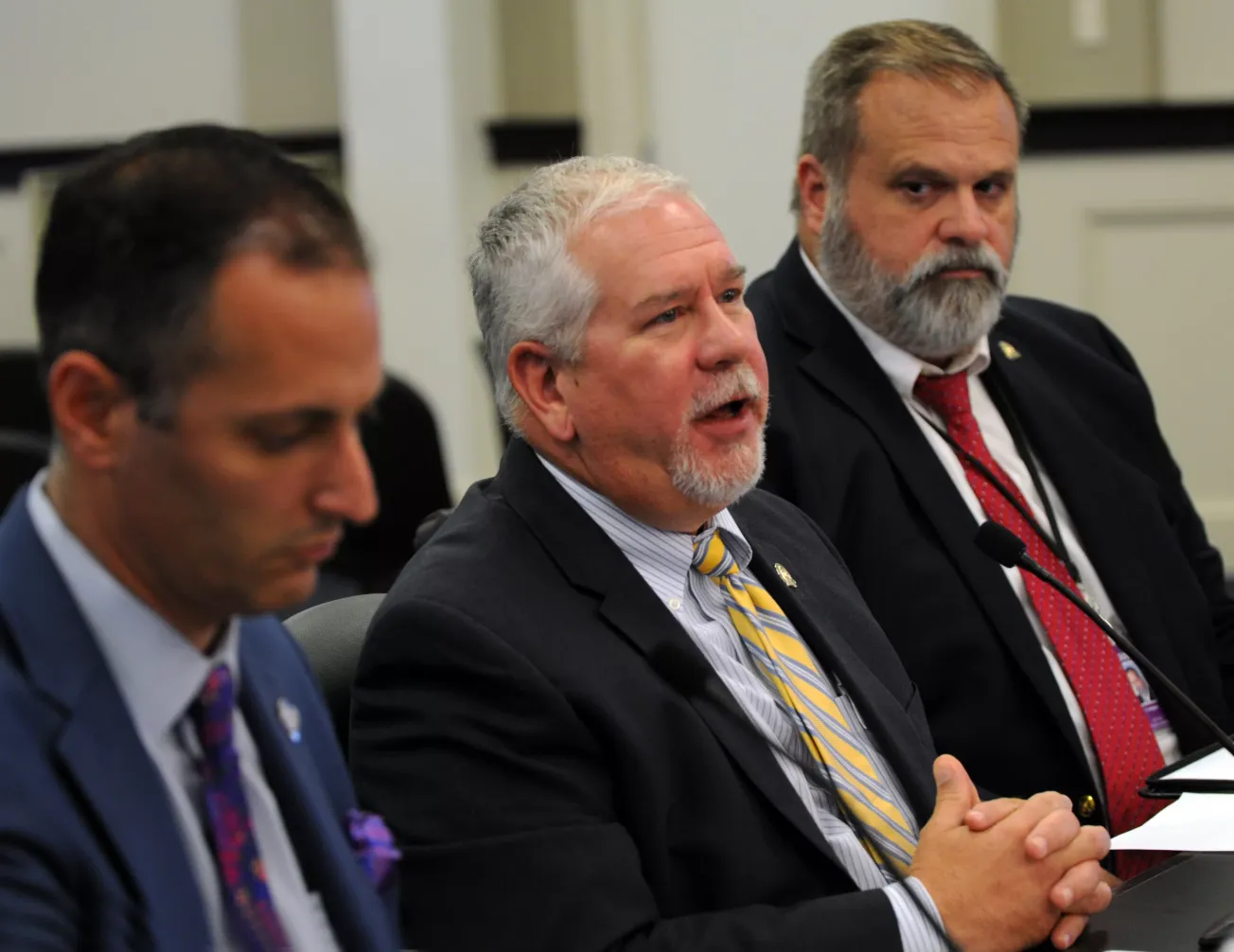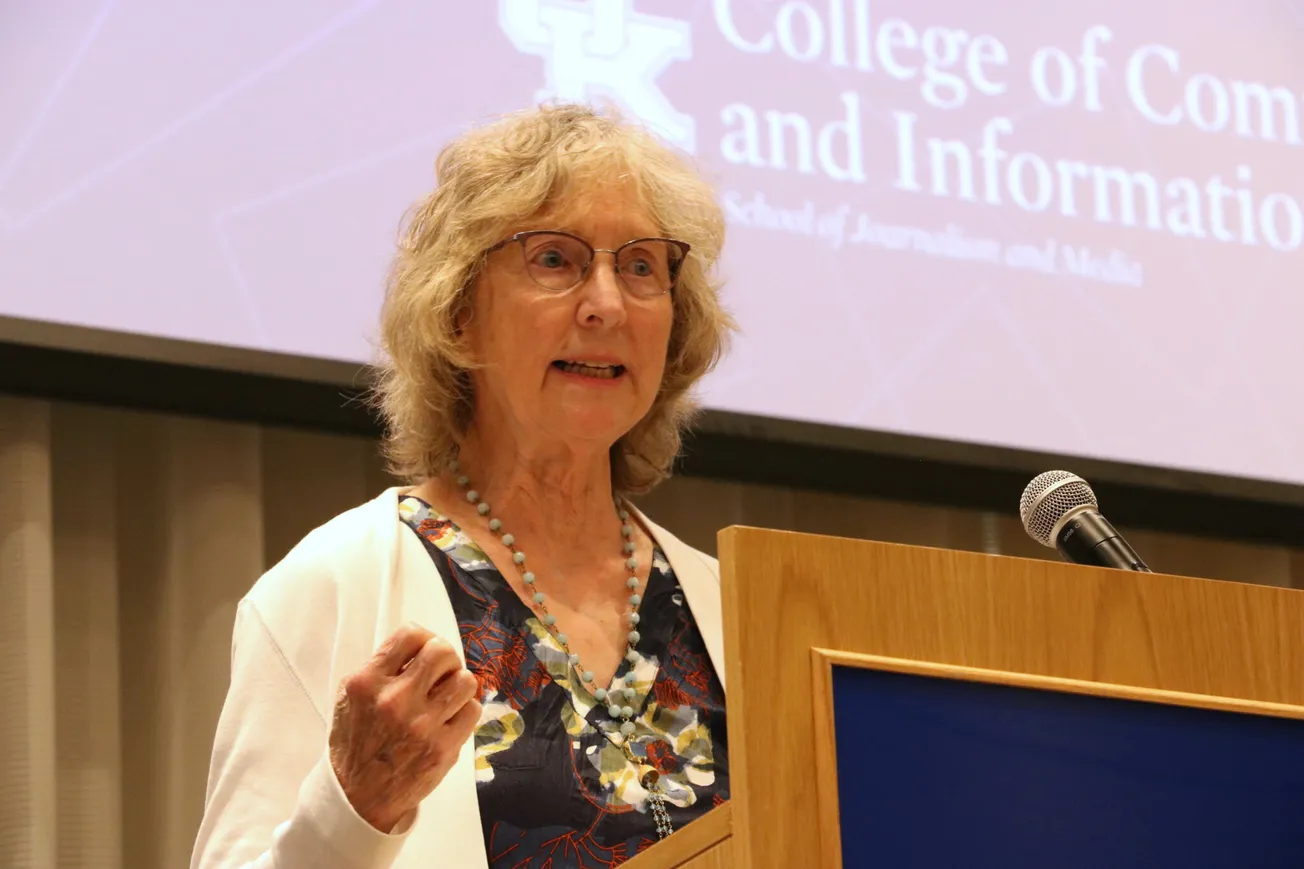Technology once seen only in science fiction is now becoming reality. Some members of the Kentucky General Assembly want to make sure it’s used for good, not evil.
Bill Request 26 would aim to regulate the use of automated license plate readers, drones, artificial intelligence and microchip technology. The bipartisan initiative is led by Rep. John Hodgson, R-Fisherville, Rep. John Blanton, R-Salyersville, and Rep. Daniel Grossberg, D-Louisville.
All three lawmakers testified before the Interim Joint Committee on Judiciary on Thursday. Hodgson called the potential bill for the 2024 legislative session a “team effort.”
“It’s widely supported by the public,” Hodgson said. “Nobody really wants the government or their neighbor spying on them, and that’s the genesis of this bill.”
Hodgson said he the co-sponsors want a draft of the bill available to the public early to create a dialogue and make sure the legislation won’t have any unintended consequences.
The first section of BR 26 covers automated license plate readers. An entity could retain collected data for only 90 days unless it’s evidence in a felony case, the subject of a subpoena or being used to collect tolls. The bill would also prohibit the sale of license plate data.
The second section of the bill would apply to unmanned aircraft or drones, Blanton said. BR 26 would prohibit the use of drones with an imaging device on private property without the owner’s written consent. Some exceptions would apply for law enforcement with a search warrant, for example. Civil action may be taken against violators, according to the draft of the legislation.
Other portions of the bill would protect Kentuckians from the unlawful transmission of a deep fake, Grossberg said.
“A deep fake is a fabricated video or audio clip made with machine learning to imitate a real person,” he said. “Since the term was coined in 2017, the emerging technology has advanced rapidly. Anyone with a cheap program can create a deep fake visually indistinguishable from reality with less than a minute of audio and a handful of pictures.”
Grossberg said the FBI and the Department of Homeland Security have already issued warnings against the technology.
“Fraudsters can now mimic reality at a level once thought impossible,” he added. “Online predators can lure children with realistic young avatars. Deep fake pornography can be used to harass women who post on social media.
“In fact, according to a deep fake detection agency, Sensity AI, 95% of deep fake videos posted online are non-consensual pornography.”
BR 26 would prohibit the dissemination of a deep fake without the depicted individual’s written consent. Violators would be subject to civil action and possible criminal charges.
Distributing a deep fake with the intent to harm, harass, annoy, threaten, alarm or cause harm to the reputation or finances of the depicted individual would be a class D felony under the bill.
Additional language in BR 26 would protect individuals from being required or coerced into the implantation of an identification device or a microchip.
Although the current version of the bill only covers four areas of electronic privacy, Hodgson said more provisions may be added as he and others learn more about AI technology.
During the interim, the Kentucky General Assembly cannot take any action on legislation. The 2024 legislative session begins Jan. 2.
A draft of BR 26 is available at https://apps.legislature.ky.gov/CommitteeDocuments/8/26600/24%20RS%20BR%2026%20DRAFT.pdf.
--30--
Written by Jordan Hensley, Legislative Research Commission Public Information Office.







